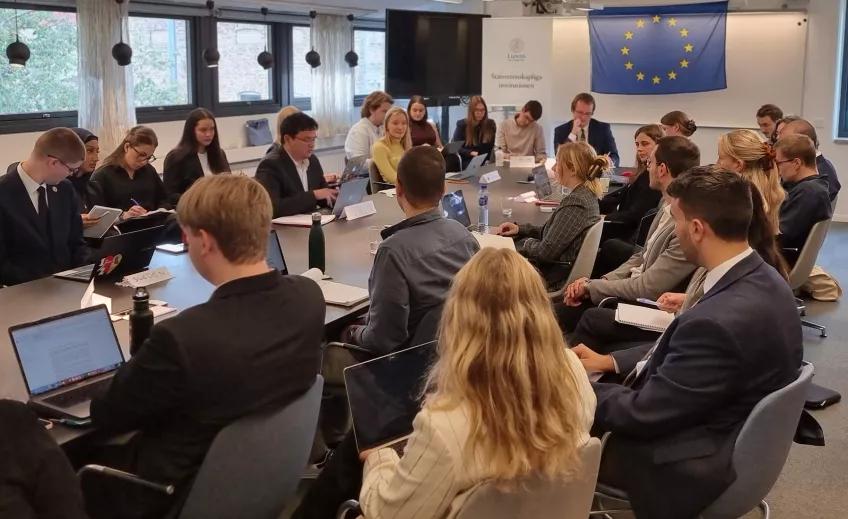European Governance
STVP30 – European Governance (15 credits). Master course in Political Science. Autumn term.
The aim of the course is (a) to convey a theory-based understanding of European governance, that is, the political system of the EU and its processes of policy-making and (b) encourage independent in-depth analysis of current key issues in European governance.
The course is divided into two parts: an overview of the overarching themes of the course, and a study of a particular topic, related to the student’s own interest within the themes of the course.
The course presents and investigates four themes:
- the development of the European project
- the driving forces in European governance, elaborating on theories of European integration, as well as conflicting values in European governance and channels of interest mediation
- the institutions of the EU and the operation of the decision-making machinery, focusing on executive, legislative and judicial politics
- the output of the system in the form of markets, money and regulation; enlargement, justice and home affairs.
Literature (pdf, new window)
Syllabus (pdf, new window)
Find out more
Here's an article about this event in the autumn of 2023:
European Council negotiations success for Lund masters’ students | Department of Political Science


